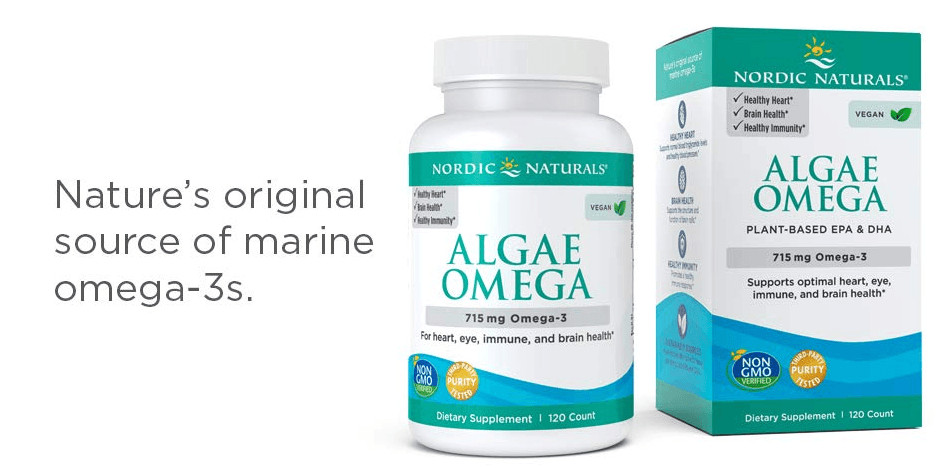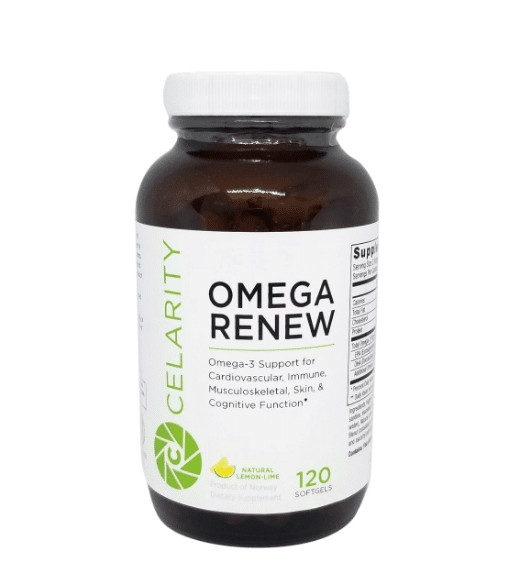What are algae?
A simple, non-flowering, and typically aquatic plant of a large group that includes the seaweeds and many single-celled forms. Algae contain chlorophyll but lack true stems, roots, leaves, and vascular tissue.
Singular: Alga
Plural: Algae
What are Omega-3 Fatty Acids?
Algae Omega-3

Algae based omega-3 is suitable for vegans and vegetarians people. It is 100% plant based, derived from sustainable algae and seaweed.
Algae omega-3 is available in form capsules, that contains omega-3 fatty acids, especially Eicosapentaenoic Acid (EPA) and Docosahexaenoic acid (DHA). Omega-3 Fatty Acids help maintain cholesterol and triglyceride levels.
Algae Omega-3 Health Benefits

Omega-3 are fatty acids that are good for our health and helps reduce other unhealthy fat in our body. That result in improved functionality of heart, brain, and overall our body. It has a preventative effect on muscle infections. Omega-3 is also beneficial for joints, bone development and plays a crucial role in brain cell regeneration .
- Hearth Diseases
- Brain cell regeneration
- Joint Pain and Recovery
- Prevents muscle infection
- Bone development
Omega-3 fatty acids melt down the bad cholesterol in our body, that means it helps in weight loss as well. If you eat junk food, oily food, or want to get rid of gained extra weight post pregnancy. You should include omega-3 rich food in your daily meal.
Algae Based Omega-3 for Bone (Osteoporosis) and Joint
Algae based Omega-3 supplements do help recover from bone diseases (Osteoporosis) and joint pain. I am sure what soft of supplement you like the most or prefer taking.. It could be capsules or the oil form of algae based omega-3 or directly edible algae from the local market place or from the local seashore. If I have joint or bone related issues then I would use algae oil externally to message bone and joint, algae based omega supplements in extreme cases, and regularly I would prefer taking edible algae salad, snacks, drinks or smoothies. There are many edible algae that are easily available at Asian restaurants at salads, soups, and snacks. And a lot of DIY people around the world prepare algae at home to make smoothies and drinks.
You can also prepare algae stocks and stocks can be added to vegetable, soups, etcetera.
All edible algae have almost similar nutritional profiles – rich in minerals and more or less amount of fatty acids (omega-3, omega-6, omega-9).
Please keep in mind that commercially harvested algae plants would not have the good quality/quantity of nutrients. So, you must look for organically grown from the ocean. Also, depending upon where algae are coming from would determine their nutritional profile.
People who have been eating algae for centuries, prefer aged algae for their rich nutritional profile and certain parts of Japan and Korea aged algae are costly and sometimes not available.
Other Omega-3 Rich Vegan Sources
Fruit Omega-3 Sources
- Avocado
- Orange
- Kiwi
- Raspberry
- Mangoes
- Honeydew Melon
- Blueberries
Fish Omega-3 Sources
SalmonMackerel
Nuts & Seeds Omega-3 Sources
- Walnuts
- Almonds
- Chia Seeds
- Hemp Seeds
- Flax Seeds
- Beans
Vegetable Omega-3 Sources
- Spinach
- Kale
- Cabbage Family
- Winter Squash
- Collard Greens
What’s not specified here is that all sources of non-animal Omega-3 are ALA Omega 3 (not DHA or EPA) and that the conversion from ALA to EPA in the human body is very inefficient (1 to 8 %)
Therefore, as vegetarians, my husband and I (currently having health issues because of a lack of reliable EPA and DHA and vitamin B12) are facing the dilemma between going back to eating fish (after 6 years of not eating any meat) or letting our health worsen… I’m desperately looking for help, because we do not want to eat animals… but we do not want to die early deaths due to a lack of nutrients that we could be getting from fish.
Algae do contain EPA and DHA, unlike land plants such as flax.
Great article. I was able to learn a lot. I didnt realize a lot of the foods I already eat like Kale, were high in Omega 3’s.
My research suggests that ALA Omega-3 is inefficiently converted to the Omega-3 we need for heart health, EPA and DHA. I was eating lots of plants high in ALA Omega-3 and had my Omega index tested and it was low (looking to be over 8).
I want to eat the seaweed directly instead of it having fish eat it and me eating the fish to get EPA and DHA. But, finding seaweed with packaging that says it has the oil is driving me nuts. Does anyone have a source?